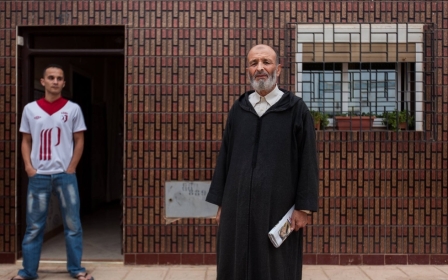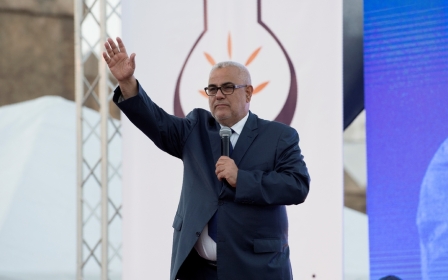Morocco ready to 'take back its natural position in Africa' and re-join AU

Morocco’s King Mohammed VI declared that his country was ready to “take back its natural position in Africa” during a speech on Sunday as he met with African leaders in Senegal.
His speech marked the 41st anniversary of the 1975 Green March, when Moroccan protestors and troops marched into the Western Sahara in an attempt to force Spain to hand over the disputed territory.
In a gesture of African solidarity, Mohammed VI delivered this annual speech from outside of Morocco for the first time to "show the great interest we take in our continent," while emphasising the "unshakeable Moroccan identity of the Western Sahara".
The Green March quickly spiralled into a fully-fledged war between Morocco and Western Saharan militias from the Polisario movement – a conflict that would last 16 years and ended with victory for the kingdom.
Mohammed VI also declared that Morocco has "a staggering level of support to take up a seat in the heart of the institutional family of Africans," referring to the African Union.
Morocco is seeking to re-join the African Union after quitting in 1984 in protest at its decision to accept the Western Sahara as a member.
Mohammed VI arrived late Sunday from Gabon on a three-day trip to Senegal following an East Africa tour marked by visits to Rwanda and Tanzania.
“His Majesty the King’s stay in Senegal is part of strengthening long-standing and privileged relations of friendship and multifaceted cooperation between the Kingdom of Morocco and the Republic of Senegal,” said a government statement issued on Saturday in Dakar.
He is due to meet Senegalese officials on Monday, including President Macky Sall, on issues of shared interest and the signature of cooperation agreements between the two countries.
The Western Sahara
Morocco has occupied the sparsely populated Western Sahara since 1975 in a move that has not been recognised by the international community.
Mohammed VI emphasised his nation would "ask no one's permission to take our legitimate rights," as "nothing" would change regarding its position on Western Sahara.
Morocco maintains that the Western Sahara is an integral part of the kingdom even though local Sahrawis have long campaigned for the right to self-determination.
In 1991, the United Nations brokered a ceasefire between Moroccan troops and Sahrawi rebels of the Algerian-backed Polisario Front but a promised referendum to settle the status of the desert territory is yet to materialise.
Rabat's membership bid must be approved by a vote of the African Union Commission in order to be accepted.
The king’s visit to Senegal coincides with the gathering of world leaders in Marrakech at the UN’s COP 22 conference, to discuss how to implement the Paris climate change agreement.
This article is available in French on Middle East Eye French edition.
Stay informed with MEE's newsletters
Sign up to get the latest alerts, insights and analysis, starting with Turkey Unpacked
Middle East Eye delivers independent and unrivalled coverage and analysis of the Middle East, North Africa and beyond. To learn more about republishing this content and the associated fees, please fill out this form. More about MEE can be found here.




